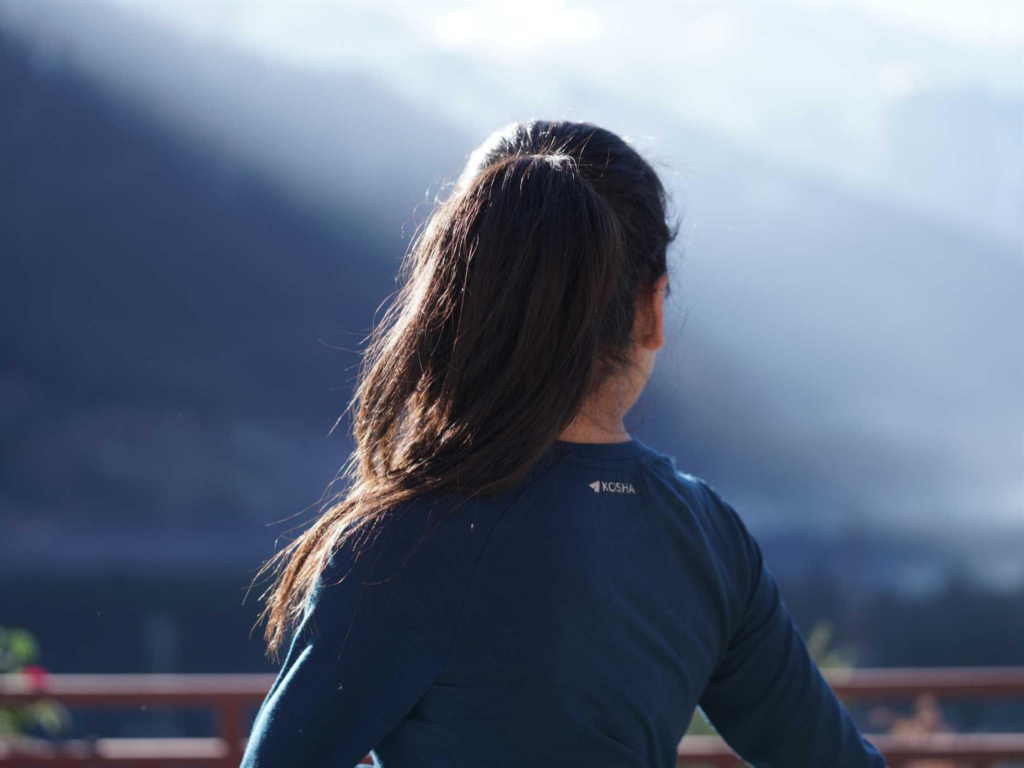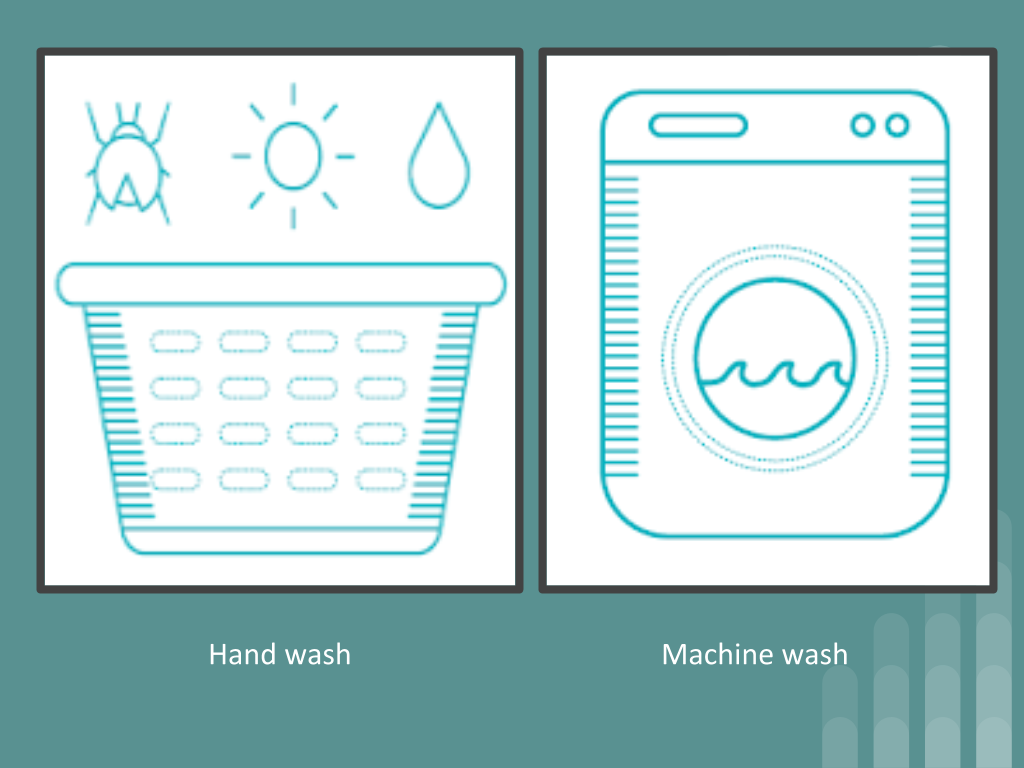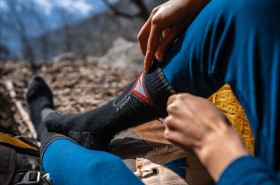
In this guide, you will find Kosha’s expert tips on how to wash thermals this winter season.
Once you discover how this natural and sustainable fiber is going to make your life easy and they are easy to wash and need low maintenance, you’ll start enjoying going out even in winters!
Stay Clean, Stay Warm, Stay Adventurous! A question that is on everybody’s mind: How to wash thermal wear?! No one likes to wear dirty clothes, but no one wants to spend all day worrying about how to wash their winter wear! What if there is an easy way to wash your thermals? Kosha’s tips and tricks will help save the day!

Washing wool is easy, as it is naturally stain resistant, odor resistant, resilient, and antibacterial. But for those same reasons, NOT washing wool is easy too! And less washing means caring for wool is both easy and better for the planet. Once you get to know how it will be only of two words, LESS LAUNDRY.
But first, let’s find out why less laundry and natural fibers are important to help the fight against climate change.
A merino wool garment can be made of 100% merino wool or can be a mix of merino wool and polyester (normally 80%-20% respectively). A mix of wool and polyester tends to be less itchy than 100% wool and will make the garment more durable so it will wash better and last longer.
Wool is often considered to be a high maintenance fabric that needs to be hand washed, which is not always the case. Merino wool garments are in fact quite easy to take care of and as they are naturally antibacterial they prevent odours so require less washing than cotton or synthetics. Merino wool is also highly resistant to stains.
How to wash thermals? The complete guide
Washing the thermals is easier than expected! Here are some handy tips to pack and store your garments:
- Avoid squeezing the garments while washing, this will stretch the wool.
- Do not tumble dry the thermals to avoid shrinkage.
- After washing and drying the garments, store them in ziplock garment bags.
- Wrap them in acid-free tissue paper, and place them in a bag or box in your travel suitcase.
- Add a few drops of eucalyptus essential oil or peppermint oil to your suitcase before closing to keep the bugs away!

Learn how to wash regular woollen thermals and more
If your merino wool thermals state it should be hand washed:
- Do hand wash in a basin with warm water and soap but do not allow it to soak for too long to avoid shrinkage.
- Do use a soft cloth to take care of any stained areas and carefully dab the affected area, do not rub! If the stain is stubborn use chlorine-free bleach if necessary. Be careful not to stretch the wool.
- Do dry on a flat surface, preferably on a towel. Merino garments can be heavy when wet so drying on a line or hanger can stretch the garment and cause it to lose its shape.
- Do reshape whilst still damp.
- Don’t wring out the garment as this will shrink the wool.
A query we are often asked: “How often should thermal wear be washed?”
Thermals should be washed for the first time after being bought. However, thermals could be washed twice a season only. That is more than enough! Over-washing thermals will damage their exclusive properties. You don’t want to over-wash your thermals, nor do you want your garments to be grimy!
After a long day of wearing thermals, it is natural to feel the need to wash them. However, the unique fabric blend of Merino Wool & Bamboo in Kosha Base Layers is that by simply hanging them up overnight and airing them out, your thermals will be good as new!
In order to use the right washing method, it is essential to know what your thermals are fabricated from. Luckily, with Kosha’s Merino Wool Bamboo Blend Base Layers your experience just gets better and easier.
A common dilemma is: “If Merino wool is so special then how should we wash our Kosha thermals without damaging them?”
Merino Wool is a delicate fiber, treat it gently. As one sweats less in winters, avoid over washing this garment to keep the fabric newer longer. Its inbuilt moisture wicking and odour resistant properties allow it to be worn for 3 to 5 days at a time without washing.
Hand wash the thermals with Ezee or Genteel or any mild liquid detergent. In the case of machine wash, the 4 simple steps shown below will ensure the best method for washing your thermals without having them shrink. It is important to check the tag on each garment for the best results.
Keep in mind, Kosha’s thermals aren’t like any other!

Wash merino wool and cotton thermals in a washing machine
Useful tips to keep in mind while washing thermals:
- Do machine wash on a low to medium heat (30 degrees) on a cold cycle or use a wool wash/delicates option if available. Always check the garment label for specific temperature guidelines.
- Do wash with like for like colours. Merino wool should be colour fast but washing dark or bright colours separately from light colours and whites will avoid any damage should the colour bleed.
- Do wash inside out, especially if the garment is printed. This will help prevent bobbling.
- Do use a mild detergent. If using a powdered detergent you may wish to dissolve it in a little water first to prevent large flecks of the detergent from settling on the fabric which can stick or cause holes.
- Do wash separately where possible. If not, then wash with ‘harder’ garments, such as denim, which will reduce piling.
- Do tumble dry on a low heat (if garment care instructions allow) or dry lying flat.
- Do iron your garment on a cool or wool setting (if the garment care instructions allow). You may find your garment doesn’t need any ironing at all.
- Don’t dry on or near heat or in direct sunlight as the heat may cause it to shrink.
- Don’t dry clean or use bleach. A lot of bleaches will use chlorine which can destroy the merino fibres.
- Don’t wring out the garment as this will stretch the wool.
Quick do’s and don’ts for you
- Do read the label and specifics of your clothing.
- Do a first wash in the first 3 wears even if it doesn’t smell yet. It will prevent pilling.
- Avoid mixing dark and light colors.
- Do turn clothes inside out.
- Wash below 40 degrees.
- Don’t use fabric softener.
- Don’t wring your clothes and/or don’t leave them long in the washing machine after the program ends as it leaves your garment misshapen.
- Lay flat to dry and avoid the heat of a radiator or direct sun.
What makes Kosha’s Base Layers extra special?
The first part of any layering system starts next to the skin, with the base layer. Ask any performance athlete and they will tell you that a base layer is a key to staying comfortable and warm during the winter.
When temperatures plummet, you want to maintain your focus on the road ahead and your performance, not the cold weather. That’s why strong insulation is so essential. And our base layers are made up of merino wool and bamboo fiber blend. They are soft on the skin, they are breathable and so lightweight, and here’s how..?
Breathable: Thanks to the Merino Wool x Bamboo Fiber blend’s quick-drying properties, it will keep you sweat-free during adventurous experiences.
Antibacterial: While hiking and skiing, we all want to stay fresh and active. Both Merino wool and Bamboo fiber have antibacterial properties themselves, thus allowing you to stay odor-free at all times.
Lightweight: Kosha’s thermals were made approximately 22% lighter. Easy to wear and no baggage weight, plus, they double up as tees.
Warm: Our temperature regulating base layers are inherently adaptive. This inventive blend will keep you between -15°C to 20°C.
As we say goodbye to Winter, the heat begins and the warmer seasons begin. We start to pack our winter clothes to make space in our closets. Many people begin to search for a way to store their winter wear without damaging them.
With these simple steps, your thermals will always be fresh, clean and eco-friendly. With Kosha’s tips & tricks, there is always a way to ensure your garments are spotless!
Check out Kosha’s re-invented thermals, called Base Layers for Men, Women, Boys and Girls. We believe in eco-conscious technical clothing for explorers of all shapes and sizes.
Say hello to us @koshatravelwear on Instagram, Facebook, Pinterest, LinkedIn.
This post was compiled & written by Team Kosha members: Suha Hamadi, Namrata Ganguly & Pallavi Kokane.



